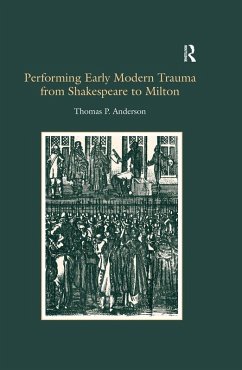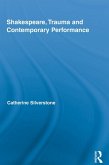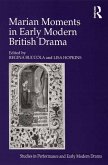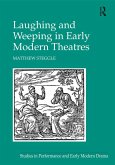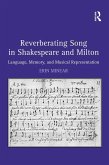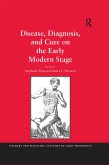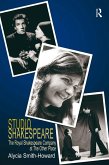An examination of political and cultural acts of commemoration, this study addresses the connection of representation of violence in literary works to historical traumas such as royal death, secularization and regicide. Incorporating contemporary theories of trauma, Thomas Anderson here analyzes works by Shakepeare, Marlowe, Webster, Marvell and Milton. By interrogating the difficulty in representing historical crises in poetry, drama and political prose, Anderson demonstrates how early modern English identity is the fragile product of an ambivalent desire to flee history.
Dieser Download kann aus rechtlichen Gründen nur mit Rechnungsadresse in A, B, BG, CY, CZ, D, DK, EW, E, FIN, F, GR, HR, H, IRL, I, LT, L, LR, M, NL, PL, P, R, S, SLO, SK ausgeliefert werden.

